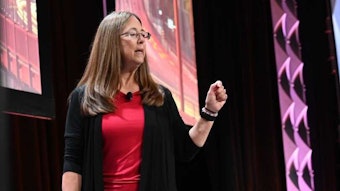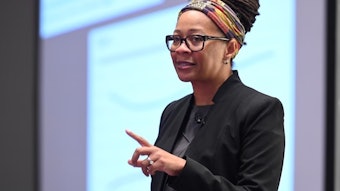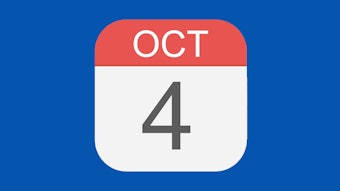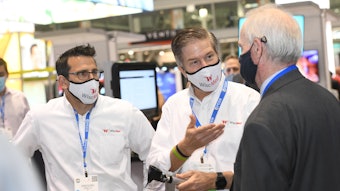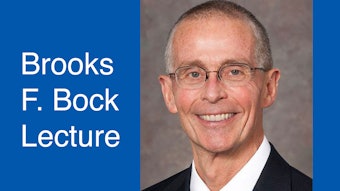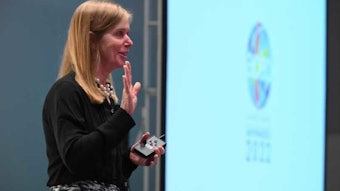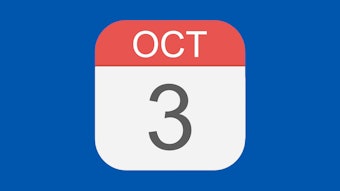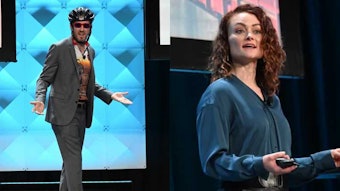Find Courses to Elevate Your Career
Invest in your future.

Take time during ACEP22 to invest in yourself – your career path, your business acumen, even your personal finances. ACEP22 is an opportunity to pause, pullback, and think big picture about your personal goals. You have exciting plans, and we want to help you get there.
Business of Emergency Medicine
Circle these opportunities to learn more about the business of emergency medicine. Feel empowered by hearing the latest perspectives on scope of practice, contract negotiations, surprise billing, workforce, reimbursement, and compensation.
EMTALA From the Trenches
8:30-8:55 a.m. | Saturday, Oct. 1
Location: MCC, Room 153
Faculty: Diana Nordlund, DO, JD, FACEP
Not so interested in the fine letter of the law, but vaguely aware of a federal law that applies every time you go to work? Be on a need-to-know basis with EMTALA and learn just enough to keep from being suspended, fined, or fired. This short session is designed to answer your real-life questions about what to do at the EMS radio at 3 a.m.
Locums: Where Are We Now?
8:30-8:55 a.m. | Saturday, Oct. 1
Location: MCC, Room 154
Faculty: Tracy G. Sanson, MD, FACEP
Travel, flexibility, and amazing income. Is locums work really an option for employment? Explore the history of locums work and get a glimpse into the future of EM practice. Attend this session to demystify the ads and learn if a career in locums is right for you.
How to Evaluate a New Job and Negotiate the Contract
12:30-12:55 p.m. | Saturday, Oct. 1
Location: MCC, Room 153
Faculty: Michael A. Gisondi, MD, FACEP; Maria E. Moreira, MD, FACEP
From community to academic, ED jobs and contracts are as varied as our clinical sites. What should new grads and veterans alike look out for when evaluating job offers, and what are effective negotiating strategies?
Pandemic Silver Lining: New Policies Enacted During the Pandemic That Should Stay (Colin C. Rorrie, Jr. Lecture)
12:30-1:20 p.m. | Saturday, Oct. 1
Location: MCC, Room 207
Faculty: Michael A. Granovsky, MD, FACEP
The COVID pandemic had far-reaching effects on a wide variety of health policy, from reimbursement to regulatory guidelines to licensure. We review several aspects of policies enacted during the last two years that had a positive effect on emergency medicine practice, including reimbursement, telemedicine, metrics and guidelines, and much needed improvements to medical staff credentialing and interstate medical licensure agreements.
RVU Killers: 2023 Brand New ED Documentation Guidelines – Avoid Mistakes and Maximize Opportunities
4:30-5:20 p.m. | Saturday, Oct. 1
Location: MCC, Room 154
Faculty: Michael A. Granovsky, MD, FACEP
The devil we knew, the 1995 Documentation Guidelines, are being retired. No more four HPI and 10 review of systems. In fact, the history and exam likely won’t contribute to scoring your record. A brand-new medical decision-making process will be in place starting Jan. 1, 2023, that will determine 90%of ED RVUs and reimbursement.
ReimbERsement 101: What You Don’t Know CAN Hurt You
8-8:25 a.m. | Sunday, Oct. 2
Location: MCC, Room 304
Faculty: Michael A. Granovsky, MD, FACEP
Attend this course to discover the latest and greatest in reimbursement challenges and solutions from an expert. MIPS, QCDRs, alternative payments models, insurance denials, and more reimbursement opportunities will be covered via a fast-paced introduction and solution review.
Liability Concerns and Controversies Working With Non-Physician Providers
8:30-8:55 a.m. | Sunday, Oct. 2
Location: MCC, Room 304
Faculty: Diana Nordlund, DO, JD, FACEP
Non-physician provider (NPP) supervision and incurred liability isa frequent concern expressed by ACEP physicians. A physician-attorney and non-physician provider will co-present with an experienced non-physician provider to address NPP training, supervising physician liability, and independent practice.
Report Your MIPS or Your Paycheck Dips: Emergency Physician Compensation Update 2022
9-9:25 a.m. | Sunday, Oct. 2
Location: MCC, Room 303
Faculty: Stephen K. Epstein, MD, MPP, FACEP
Physicians caring for America’s 60 million Medicare patients are receiving payments based on quality of care over quantity of care via CMS’s Quality Payment Program. The speaker will review MIPS, the value-based payment modifier, reporting options including CEDAR, recent Quality Payment Program updates, and the expectation for your bottom line.
The Emergency Medicine Workforce (James D. Mills Lecture)
10-10:50 a.m. | Sunday, Oct. 2
Location: MCC, Room 207
Faculty: Catherine Anna Marco, MD, FACEP
The ACEP Workforce study has presented challenges to the profession in its modeling of EM practice and predictions over the next 10 years. A member of the ACEP Board will present updated activity and information on this most critical of specialty issues.
ReimbERsement 201: Procedural RVUs That You Are Missing
1:30-1:55 p.m. | Sunday, Oct. 2
Location: MCC, Room 304
Faculty: Michael A. Granovsky, MD, FACEP
Procedures are bread and butter for emergency physicians, but the RVU reimbursement can vary widely with subtle differences in documentation. The speaker will review the nuances of procedural documentation to maximize reimbursement for procedures that you are already doing.
M-V-P! M-V-P! Are You Ready for MIPS Value Pathways in 2023?
5-5:25 p.m. | Sunday, Oct. 2
Location: MCC, Room 303
Faculty: Stephen K. Epstein, MD, MPP, FACEP
Just when you thought maybe you were getting the hang of MIPS reporting and documentation, CMS has announced MIPS Value Pathways, or MVP. ACEP submitted an emergency medicine-specific pathway to CMS that will be an option in 2023 for emergency physicians. The speaker will review the details of this new pathway and how to prepare for its implementation in 2023.
What’s Next: 5 Strategies for Reinventing Your Career in Uncertain Times
9-9:50 a.m. | Monday, Oct. 3
Location: MCC, Room 301
Faculty: Jay A. Kaplan, MD, FACEP
We often discuss the concept of burnout within the ever-changing landscape of emergency medicine, including decreased reimbursement, physician compensation, and job opportunities, as well as increased requirements, regulations, and litigation potential. In this maelstrom, many EM physicians may look toward non-traditional paths to supplement or supplant their careers. Should you obtain a new degree or certification. What administrative roles are available? What do you need to know about developing new products? What other jobs can best use the unique skillset we provide while maintaining job satisfaction? The speaker will explore options for EM physicians wishing to transition into non-traditional work settings and channel their passion and hobbies into career success.
Contract Nightmares: Due Process, Force Majeure, Indemnification Clauses, and Non-Competes
10-10:50 a.m. | Monday, Oct. 3
Location: MCC, Room 301
Faculty: Rachel Lindor, MD, JD
Every major EM organization signed a letter to CMS demanding physician due process rights. Does your current contract force you to waive your due process rights? Did you agree to provide reimbursement to your employer whose negligence may have contributed to your patient’s injuries by signing an indemnification clause? Can you work for the across-town competitor ED or are you bound by a non-compete clause?
#InsuranceFail: Surprise Billing Update 2022
11:30-11:55 a.m. | Tuesday, Oct. 4
Location: MCC, Room 154
Faculty: Adam Krushinskie, MPA
The issues surrounding the out-of-network/balance billing debates have engulfed clinicians, politicians, and consumers from DC to Olympia. The increasingly narrow networks offered by the fewer and fewer health plans have decreased patient access and increased patient cost-sharing while increasing insurance company profits. The discussion will highlight existing state out-of-network billing legislation and an update on pending or enacted federal legislation.
How To Get a Job – Employment in the New Normal
12:30-12:55 p.m. | Tuesday, Oct. 4
Location: MCC, Room 155
Faculty: Brian Stettler, MD, FACEP
It’s a different job market for emergency physicians than it was even a few years ago. Opportunities exist though for the new graduate, those changing careers, those in academics or the community, and even locums. How to go about getting a job in these settings, marketing yourself, and staying sane through the hiring process will be discussed.
Equity and Inclusion
ACEP is committed to making our organization and our specialty more diverse, more equitable, and more complete.
Working as a Female in the ED: Coffee House Chat
12:30-1:20 p.m. | Saturday, Oct. 1
Location: MCC, Room 203Moderator: Diane M. Birnbaumer, MD, FACEP
Faculty: Arlene Chung, MD, FACEP; Starr Knight, MD; Vonzella A. Bryant, MD, FACEP
A perspective on working as a female in the emergency department.
Diversity, Equity, and Inclusion: The Patient, Trainee, and Leadership Perspective (Leon L. Haley, Jr. Lecture)
4-4:25 p.m. | Saturday, Oct. 1
Location: MCC, Room 207
Faculty: Vonzella A. Bryant, MD, FACEP
Discussion about diversity in emergency medicine has been happening for years. What progress have we made? What improvements in outcomes does it bring? What techniques can improve diversity of EM physicians at your workplace? Come hear the answers to these vitally important questions to help our workforce better represent our patient populations.
Unlearning Implicit Bias
10:30-10:55 p.m. | Sunday, Oct. 2
Location: MCC, Room 304
Faculty: Bernard Luis Lopez, MD, FACEP
Implicit bias is real and may be affecting our teaching and mentoring more dramatically than we realize. This course will teach learners to identify implicit bias and will provide techniques to unlearn these behaviors. Ultimately, this will improve teaching and mentoring of all learners.
Social Medicine That Matters Most in the Trenches
10-10:50 a.m. | Monday, Oct. 3
Location: MCC, Room 203
Faculty: Aimee K. Moulin, MD, FACEP
Although designed for medical emergencies, EDs have become a common place where patients seek help for various problems. EDs thus care for patients who present for not only heart attacks and strokes but also a variety of social ills, such as homelessness, poverty, and hunger. It is estimated that only 20% of a patient’s health is shaped by medical care whereas social and economic factors account for 40% of health outcomes, highlighting the importance of concurrent medical and social interventions to advance patient health outcomes. The latest innovations in addressing the social determinants of health will be discussed to illustrate the options available within their departments.
Starting Public Health Interventions in Your ED – A Panel by the ACEP Public Health Committee
10-10:50 a.m. | Tuesday, Oct. 4
Location: MCC, Room 154
Faculty: Paula Jo Whiteman, MD, FACEP; Carolyn Joy Sachs, MD, MPH, FACEP; Ralph James Riviello, MD, MS, FACEP
Public health interventions such as opiate treatment programs or food pantries can simplify encounters for physicians while better serving the needs of our patients. This panel from the ACEP Public Health and Injury Prevention Subcommittee will demystify the process of launching your own program in the ED and provide tangible examples of interventions.
Belonging: The Intersection of Diversity, Equity, and Inclusion, and Physician Well-Being
12:30-12:55 p.m. | Tuesday, Oct. 4
Location: MCC, Room 153
Faculty: Al’ai Alvarez, MD, FACEP
Diversity is key to the success of medicine, yet despite efforts, trends have not been reassuring. Underrepresented in medicine encounter barriers such as imposter syndrome, microaggression, and implicit bias. Developing infrastructure addressing these barriers promote resilience and inclusivity. Belonging is critical in efforts to advance equity and inclusion.
Leadership and Mentoring
In and out of the emergency department, developing your leadership skills is a worthwhile investment. Make time for these courses devoted to staff management, mentoring, and more.
The HR Nightmare: Managing Difficult Staff
1-1:25 p.m. | Saturday, Oct. 1
Location: MCC, Room 304
Faculty: Peter Viccellio, MD, FACEP
Does the old adage of 10% of your people take up 90% of your time apply to you? Leadership roles can be challenging and may not be exactly what you thought you were getting into when taking on the role. Leave this talk with tools to gain back some of your leadership time.
Emotional Intelligence and Mindful Listening
10-10:50 a.m. | Sunday, Oct. 2
Location: MCC, Room 301
Faculty: Jay A. Kaplan, MD, FACEP
Emotional intelligence (EI) has been touted as a more powerful determinant of good leadership than technical competence, IQ, or vision; and it’s composed of skills we can all learn and improve on. The speaker will provide practical advice and tips to help you determine your EI strengths and weaknesses, deal with difficult people, and demonstrate EI in the workplace. In addition, the speaker will discuss how mindful listening keeps team members more engaged, fosters new ideas, and allows others to learn and grow.
But I Didn’t Say Anything: Effective Skills for Non-Verbal Communication
1-1:25 p.m. | Sunday, Oct. 2
Location: MCC, Room 154
Faculty: Robert W. Strauss, MD, FACEP
We all know that when we interact with others, the majority of our communication comes through as non-verbal. Come learn the tricks to effective non-verbal communication and improve your relationships with patients, colleagues, and even family and friends.
How to Be an Effective Mentor
4:30-4:55 p.m. | Sunday, Oct. 2
Location: MCC, Room 301
Faculty: Arlene Chung, MD, FACEP
Great mentoring is often the key to a person’s career success. But what is great mentoring? How can we be effective mentors? How can we be great mentees? During this session, a mentoring expert will describe how to be an effective mentor and mentee today.
What I Learned My First Year as a Director
10-10:50 a.m. | Monday, Oct. 3
Location: MCC, Room 303
Faculty: Azita Hamedani, MD, MBA, MPH, FACEP
Describe transitions in leadership and lessons learned. Tips and tricks for success for this leadership role will be discussed.
Top 5 Mistakes to Avoid as a Leader
4:30-4:55 p.m. | Monday, Oct. 3
Location: MCC, Room 301
Faculty: Azita Hamedani, MD, MBA, MPH, FACEP
Learn from the mistakes of others. Avoid the pitfalls of those in leadership roles. Take your role to a new level and review strategies on how to mitigate any damage already done.
Liability Lessons
Being an emergency physician comes with liability risks, but you can feel more empowered by educating yourself about common medicolegal issues. ACEP22 offers a broad selection of courses to help you protect your career by learning how to limit your legal risks.
Expert Witness in an Hour Workshop: Protect Yourself and Advocate for the Underserved
12:30-1:30 p.m. | Sunday, Oct. 2
Location: MCC, Room 151
Faculty: Charles A. Pilcher, MD, FACEP; William Weber, MD, MPH
Harness your medical knowledge to learn the basics of expert witness work. This interactive seminar will cover the basics of legal writing and “standard of care” through practice cases led by a team of physicians and an attorney. Legal writing helps strengthen your own documentation and opens up opportunities for extra income and medical advocacy.
Informed Consent: Sign Here ... See You in Court
2-2:25 p.m. | Sunday, Oct. 2
Location: MCC, Room 301
Faculty: Rachel Lindor, MD, JD
With the continued rise of patient autonomy comes increasing risk to EPs of dual-pronged lawsuits alleging medical malpractice AND lack of informed consent. An MD/JD will use cases to illustrate numerous barriers to the informed consent process in emergency department patients. Who can provide consent? Is a written form required? Is the physician obligated to discuss his/her competence? When isn’t informed consent required? How do courts evaluate claims of inadequate informed consent?
GOTCHA! The Medical Chart: Anticipating the Lawyer’s Review
4:30-5:20 p.m. | Sunday, Oct. 2
Location: MCC, Room 205
Faculty: Rachel Lindor, MD, JD
During this interactive course, the speaker will review emergency medicine charts and discuss how wording factors into lawsuits. You will learn how specific charting can help avoid getting sued and/or win the case if there is litigation.
Little People, Big Lawsuits
8:30-8:55 a.m. | Monday, Oct. 3
Location: MCC, Room 304
Faculty: Kurtis A. Mayz, MD, JD, MBA, FACEP
Eighteen years ... kid has got you for 18 years! The pediatric-emergency medicine physician attorney speaker will identify high-risk areas of medical malpractice unique to pediatric patients, discuss liability linked to the use of consultants, and address duty to warn differences specific to our pediatric patient population.
Practice to Penitentiary: Criminal Liability in EM Practice
9-9:50 a.m. | Monday, Oct. 3
Location: MCC, Room 155
Faculty: Nathaniel R. Schlicher, MD, JD, MBA, FACEP
Providers are coming under increasing threats of criminal reproductions for their actions in the care of their patients. A case-based exploration of current issues in criminal liability in opiate prescribing, liability for assault in the care of psychiatric patients, and negligent homicide in the place of medical malpractice.
Medical Errors: Prevention and Disclosure
9-9:50 a.m. | Monday, Oct. 3
Location: MCC, Room 154
Faculty: Catherine Anna Marco, MD, FACEP
Medical errors are considered a nearly inevitable issue in clinical practice. How common are medical errors? Should they be disclosed to patients and families? What are the best risk management strategies to address medical errors? These and other issues will be addressed in this session.
National Practitioner Data Bank: Opening Pandora’s Box
10-10:25 a.m. | Monday, Oct. 3
Location: MCC, Room 155
Faculty: Diana Nordlund, DO, JD, FACEP
Events reported to the NPDB affect all future licensing and credentialing. What events are reported? Is your report accurate or can it be corrected? What actions can be taken to avoid reporting or craft mutually agreed-upon the language to mitigate future professional damage?
Contract Nightmares: Due Process, Force Majeure, Indemnification Clauses, and Non-Competes
10-10:50 a.m. | Monday, Oct. 3
Location: MCC, Room 301
Faculty: Rachel Lindor, MD, JD
Every major EM organization signed a letter to CMS demanding physician due process rights. Does your current contract force you to waive your due process rights? Did you agree to provide reimbursement to your employer whose negligence may have contributed to your patient’s injuries by signing an indemnification clause? Can you work for the across-town competitor ED or are you bound by a non-compete clause?
Crisis Standard of Care: Ethical and Legal Implications of Crisis Care
12:30-12:55 p.m. | Monday, Oct. 3
Location: MCC, Room 153
Faculty: Catherine Anna Marco, MD, FACEP; Nathaniel R. Schlicher, MD, JD, MBA, FACEP
During the COVID pandemic, the commitment of the physician to the individual patient is counterbalanced by the need to protect the welfare of a population of patients. Join a bioethicist and an MD/JD to explore the ethical principles that guide development of the COVID crisis standard of care and resultant legal risk ramifications.
Black Box Drugs We Use: What’s the Risk?
1-1:25 p.m. | Monday, Oct. 3
Location: MCC, Room 304
Faculty: Bryan D. Hayes, PharmD, FAACT, FASHP
The black box drug list seems to be growing, yet we are constantly faced with drug shortages limiting our choices when caring for patients in the ED. Many of us have used these drugs extensively in the past and feel quite comfortable with continuing this use on our patients. What is our risk when we do this? Is it a reasonable risk? The speaker will summarize black box warnings on drugs frequently used in the ED, assess the risk of this continued use, justify appropriate use in specific patients, and identify critical documentation needed when choosing to use these drugs.
Become a Star at Your Deposition: An Insider’s Guide
3-3:55 p.m. | Monday, Oct. 3
Location: MCC, Room 154
Faculty: Nathaniel R. Schlicher, MD, JD, MBA, FACEP
An experienced emergency physician and attorney will present a medical case for the audience to manage with a leading charge of malpractice. A volunteer participant will be deposed. Key pitfalls and pearls of depositions will be demonstrated and discussed.
Top 5 Legal Risks in 5 Minutes or Less
4:30-4:55 p.m. | Monday, Oct. 3
Location: MCC, Room 201
Faculty: Kurtis A. Mayz, MD, JD, MBA, FACEP
Emergency medicine is a high-risk specialty. Recognizing these five predictable sources of medical malpractice claims and lawsuits in addition to cultivating practice and documentation strategies reduces the risk of becoming a defendant.
High-Risk Cases in EM
11-11:50 a.m. | Tuesday, Oct. 4
Location: MCC, Room 207
Faculty: Jennifer A. Newberry, MD, JD, FACEP
Learn how to diagnose and manage high-risk orthopedic emergencies in the ED (rhabdomyolysis, compartment syndrome, high pressure injection injuries, open fractures, septic arthritis/osteo).
Managing Risk in the Emergency Department: Lessons Learned From Tactical Emergency Medicine
12-12:25 p.m. | Tuesday, Oct. 4
Location: MCC, Room 201
Faculty: Gary W. Tamkin, MD, FACEP
Like a battlefield or urban tactical situation, the emergency department is a high-risk environment. Tactical concepts that help to keep operators safe can be deployed in your emergency department to reduce medical risk.
Personal Finance
You work hard for your money, and you want to optimize it! Make time for some financial management courses while you’re here.
Winner, Winner, Chicken Dinner: Negotiation Skills for Win-Win Outcomes
2-2:25 p.m. | Saturday, Oct. 1
Location: MCC, Room 304
Faculty: Robert W. Strauss, MD, FACEP
What do looking for your first job, buying a new house, and discussing the upcoming contract for your large group have in common? They all require negotiating skills. Having the requisite knowledge can markedly improve outcomes for all parties involved. Come hear the expert teach the foundation of understanding the negotiating process and share tips to becoming the best negotiator you can be.
How to Make Money and Grow Your Wealth
9-9:25 a.m. | Monday, Oct. 3
Location: MCC, Room 304
Faculty: Brian Stettler, MD, FACEP
Discover the secrets to a satisfying and successful career in a casual environment during this all-new ACEP Connect session. The speakers will introduce some key actions to ensure financial security by developing healthy spending habits, understanding return on investment, and choosing the right job for you.
From Rags to Riches: Personal Finance for the Early Career EP
12:30-1:20 p.m. | Monday, Oct. 3
Location: MCC, Room 201
Faculty: Brian Stettler, MD, FACEP
That first paycheck you receive as an attending is a big change of living cheaply throughout your education. Developing good financial habits from day one as an attending is a necessity. The speaker will discuss the need-to-know core basics of investing, personal finance, asset protection, and retirement planning. This course is geared toward the recent graduate with a special focus on implementing good habits in personal finance.
Teaching Tips
Teaching medical students and residents is a rewarding path with unique quirks and challenges. Veteran faculty members share their hard-earned secrets to a successful career in teaching.
Know Your Worth: How Being Junior Faculty Makes You an Asset
4:30-4:55 p.m. | Saturday, Oct. 1
Location: MCC, Room 155
Faculty: Bernard Luis Lopez, MD, FACEP
Although many physicians feel like being junior faculty in your department is a disadvantage, it is in fact the opposite. You have so much to offer your department and in the process build the career you want. This session will show you how to do just that.
Digital Scholarship: From Podcast to Promotion
5-5:25 p.m. | Saturday, Oct. 1
Location: MCC, Room 304
Faculty: Jan Marie Shoenberger, MD, FACEP
What is digital scholarship? This course will define digital scholarship and describe how technologies continue to redefine medical education. As the use of digital technology increases, new mediums, including social media, podcasts, and interactive narratives are used more frequently for medical education scholarship. How to best optimize digital scholarship for publication and promotion as a medical educator will be discussed.
Level Up Your Learners: How to Supercharge Your Teaching Skills
10-10:25 a.m. | Monday, Oct. 3
Location: MCC, Room 304
Faculty: Christina L. Shenvi, MD, PhD, FACEP
We all struggle with engaging learners who are busy, distracted, or uninterested. Whether in a lecture or on-shift, you can improve your teaching by using these three, practical, theory-grounded concepts. First, understand how adult learning theory informs how you should engage your learners. Tune it into what they want to know. Second, don’t overload their cognitive bandwidth. Cognitive load theory provides a framework for how to organize and present information that will make it easiest for the learners to process and remember. Third, cognitive apprenticeship provides practical ways you can meet the learner where they are and take them to their own next level.
Putting Zip in Your Zoom
10-10:25 a.m. | Monday, Oct. 3
Location: MCC, Room 153
Faculty: Jessica E. Hobbs, DO, FACEP
Remote meetings and teaching have become a new normal fostered by the pandemic. The speaker will discuss novel tips and techniques designed to hold the audience’s attention for an engaging, virtual presentation. Discover settings and tricks to sound, look, and share better on the virtual platform. From breakout sessions to annotation tools to sticky notes to active polling, learn how to run meetings, teach, and communicate more effectively in the virtual setting.
How to Give a Killer Talk
11-11:25 a.m. | Tuesday, Oct. 4
Location: MCC, Room 154
Faculty: Peter DeBlieux, MD, FACEP
Do your learners fall asleep or pull out their phones when you lecture? Do you struggle with how to effectively present your data? Do your slides need an extreme makeover? Do you want to make your lectures more interactive? Many educators struggle to provide high-quality, effective lectures. Their impact can be limited by poor presentation style, distracting slide design, and lackluster delivery. While drawing on available literature, this talk will explain and exemplify five key points for making lectures more interesting and keeping an audience’s attention. Come learn the ABCs of resuscitating a boring lecture.
Go LOW Tech: Interactive Low Tech Teaching Strategies
12-12:25 p.m. | Tuesday, Oct. 4
Location: MCC, Room 155
Faculty: Al’ai Alvarez, MD, FACEP
Whether you want to change up a topic you love to lecture on or you run into technological issues, going LOW tech is always a great option. Going low tech can mean getting your hands dirty (or your residents’ hands) or even using other teaching techniques to enhance your teaching styles. This presentation will show you some unique ways to “shake up” your didactic series by going low tech.
Physician Wellness
Burnout, compassion fatigue, regular fatigue. It’s a lot! Learn about systemic and individual solutions designed to help you cope with and navigate the unique stressors of emergency medicine and increase your career satisfaction.
Dead Tired: The Impact of Fatigue on Patient Safety and Physician Wellness
1:30-1:155 p.m. | Saturday, Oct. 1
Location: MCC, Room 155
Faculty: Torree M. McGowan, MD, FACEP
The unique challenges of staffing 24/7 operations like emergency departments create significant stress on physicians due to the effects of scheduling. This lecture will explore the impacts of acute and chronic fatigue on patient safety, as well as examine the literature regarding overtime hours and the impact of overnight operations. Recommendations from other high-risk industries such as nuclear power and aviation will be used to help craft a set of guidelines to guide safer emergency department operations.
Burned Beyond Recognition: Burnout’s Cost and its Solutions
3:30-3:55 p.m. | Saturday, Oct. 1
Location: MCC, Room 153
Faculty: Arlene Chung, MD, FACEP
Despite having the highest resiliency rates in the House of Medicine, emergency physicians also have the highest rates of burnout. What if half the people on your team providing care to your patients were burned out? That sad fact has become today’s unsettling reality. However, when you measure quality in your ED, all of those measures get dramatically worse with burnout. This presentation delineates the causes of burnout, as well as a detailed suite of solutions to combat it in your ED. This is not a “touchy-feely” approach but a highly pragmatic one, giving you solutions to put to work.
The Chief Wellness Officer in Emergency Medicine: A Roundtable Discussion of Pros and Cons
3:30-4:20 p.m. | Saturday, Oct. 1
Location: MCC, Room 203
Moderator: Kristen Nordenholz, MD, FACEP
Faculty: Jay A. Kaplan, MD, FACEP; Rita A. Manfredi-Shutler, MD, FACEP
As our healthcare system strives to improve emergency provider (EP) professional satisfaction, the power of leadership has been recognized as one of the critical organizational factors impacting well-being. Leadership must commit to ensuring EP engagement as a strategic imperative for organizational wellness. Initial steps include creating an infrastructure that requires commitment from top leaders and administrators promoting a culture change. Instituting a Chief Wellness Officer (CWO) may be key to ensuring safety and well-being for patients and caregivers. Review the positives and negatives of a CWO in an EM organization and explore the current status of existing CWOs.
Dealing With (Anonymous) Criticism
8:30-8:55 a.m. | Saturday, Oct. 2
Location: MCC, Room 154
Faculty: Robert W. Strauss, MD, FACEP
Providers can be the recipient of complaints either from colleagues, team members, or patients. Anonymous reporting is increasingly being used to identify bad behaviors, but what if you feel you were unfairly targeted? How do we deal with the emotional burden of negative comments and how do we transform our thought process from natural reaction into positive actions. The speakers will address mechanisms for self-assessment, behavior correction, and navigating a difficult work environment. In addition, the speaker will discuss the art of listening to hear what you need to hear, not just what you expect to hear during those difficult conversations.
Divorce, Depression and Loss: How to Keep Going When It All Falls Apart
12:30-1:20 p.m. | Sunday, Oct. 2
Location: MCC, Room 301
Faculty: Arlene Chung, MD, FACEP
Life can throw a lot at you, including abusive relationships, major illness, and competing family and professional needs. The speaker will discuss personal illustrations and lessons learned.
Exhibitors in the Recruiting/Staffing space
American Physician Partners: 1630
ApolloMD : 514
Aspirus Health: 1402
Aya Locums: 1205
Bayhealth Medical Center : 912
BRC: 301
Chickasaw Nation Department of Health: 502
Concord Medical Group: 914
Core Schedule: 1519
Cross Country Locums: 1824
D&Y: 1600
Department of Veterans Affairs: 401
Emergency Care Partners: 1410
Emergency Care Specialists: 700
Emergent Medical Associates: 1113
Emergency Medicine Specialists, Inc: 1920
EMPros: 1501
EMrecruits by R1: 1805
Envision Physician Services: 712
Guthrie Clinic: 1015
Innova Emergency Medical Associates: 827
Iris Telehealth: 1613
Kaiser Permanente/The Permanente Medical Group: 1401
Keystone Healthcare Partners: 1100
KPG Provider Services: 805
Lexx Healthcare: 1010
LocumTenens.com: 510
Marshfield Clinic Health System: 1611
Medstaff National Medical Staffing: 625
Medicus Healthcare Solutions: 2020
Mount Sinai Health System: 420
Navajo Area Indian Health Service: 407
Optum: 732
Penn State Health Emergency Medicine: 708
PracticeLink, Ltd.: 1211
Presbyterian Healthcare Services: 1404
Prisma Health: 1714
Sanford Health: 1017
SCP Health: 924
Sound Physicians: 1108
South Miami CritiCare, Inc.: 1834
Staff Care: 1304
TeamHealth: 900
UPMC Emergency Medicine: 1801
US Acute Care Solutions: 1324
US Army Healthcare Recruiting: 2015
Vituity: 1124
Weatherby Healthcare: 421
Western Healthcare: 1609
WVU Medicine: 603
Visit ACEP22 Meeting News Central for more articles.
